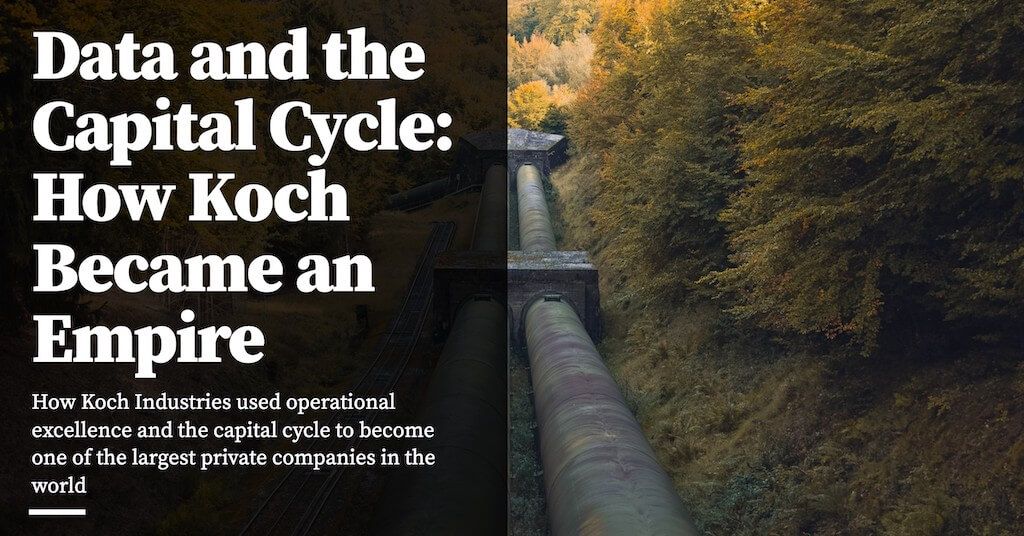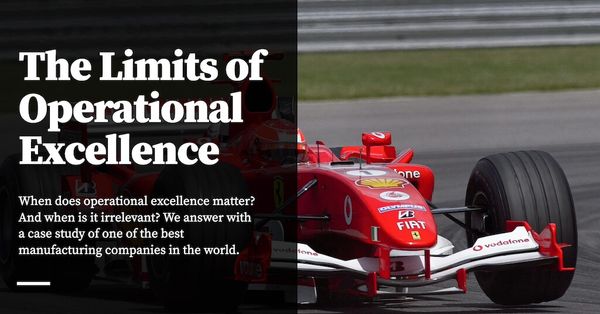How Koch Industries became an empire. We draw on ideas from both the Becoming Data Driven series and the Capital Expertise series.
This is Part 11 in a series on the expertise of capital in business. You may read the previous part here.
One of the more interesting things that we can do now that the Commoncog Case Library is up is to experiment with post formats. The following essay draws from a handful of cases about Koch Industries — examples that would make this essay too long if all I could do was to write up each case in full within the text of the essay. With the Case Library, however, I can now selectively quote snippets from each case, and offload the full context to the library itself. (This is a fancy way of saying that I expect you to read the cases after reading this synthesis, heh.)
What makes this particularly fun is that these cases bring together concepts from the two series that we’ve been covering over the past few months. These are:
- The Data Driven Series — in particular, the idea that the purpose of data is knowledge (“theories or models that help you better predict the outcomes of your business actions.”)
- The Capital Expertise Series — in particular, the ideas about growth through capital allocation, about tapping capital for expansion through retained earnings, and about manoeuvring through the capital cycle.
This essay brings all of these concepts together, through the lens of one company: Koch Industries.
Deming at the Start of the Flywheel
In 1968, Charles Koch took over his father’s company, a small engineering firm named the Rock Island Oil & Refining Company. Charles renamed it to ‘Koch Industries’ shortly after taking over. At the time, Rock Island was primarily an engineering concern; it also owned a 35% interest in the Great Northern Oil Company, which in turned owned three major things: first, the Pine Bend refinery in Minnesota, second, a crude oil-gathering system in Oklahoma, and third, a handful of cattle ranches. From this odd collection of assets, Koch grew the company into a privately held, diversified, global empire.
How did he do so?
Shortly after Koch took over, the entire oil industry — and the US economy along with it — took a turn for the worse:
Originally published , last updated .
This article is part of the Operations topic cluster, which belongs to the Business Expertise Triad. Read more from this topic here→
This article is part of the Capital topic cluster, which belongs to the Business Expertise Triad. Read more from this topic here→





